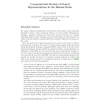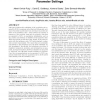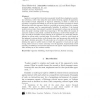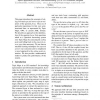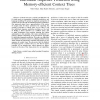120 search results - page 17 / 24 » Predictive Learning Models for Concept Drift |
ALT
2008
Springer
14 years 4 months ago
2008
Springer
Abstract For many centuries scientists have wondered how the human brain represents thoughts in terms of the underlying biology of neural activity. Philosophers, linguists, cogniti...
GECCO
2007
Springer
14 years 1 months ago
2007
Springer
This paper analyzes the scalability of the population size required in XCS to maintain niches that are infrequently activated. Facetwise models have been developed to predict the ...
AAMAS
2005
Springer
13 years 7 months ago
2005
Springer
Agents in a competitive interaction can greatly benefit from adapting to a particular adversary, rather than using the same general strategy against all opponents. One method of s...
ACL
2009
13 years 5 months ago
2009
This paper introduces the concepts of asking point and expected answer type as variations of the question focus. They are of particular importance for QA over semistructured data,...
CADE
2001
Springer
14 years 8 months ago
2001
Springer
Context trees are a popular and effective tool for tasks such as compression, sequential prediction, and language modeling. We present an algebraic perspective of context trees for...
